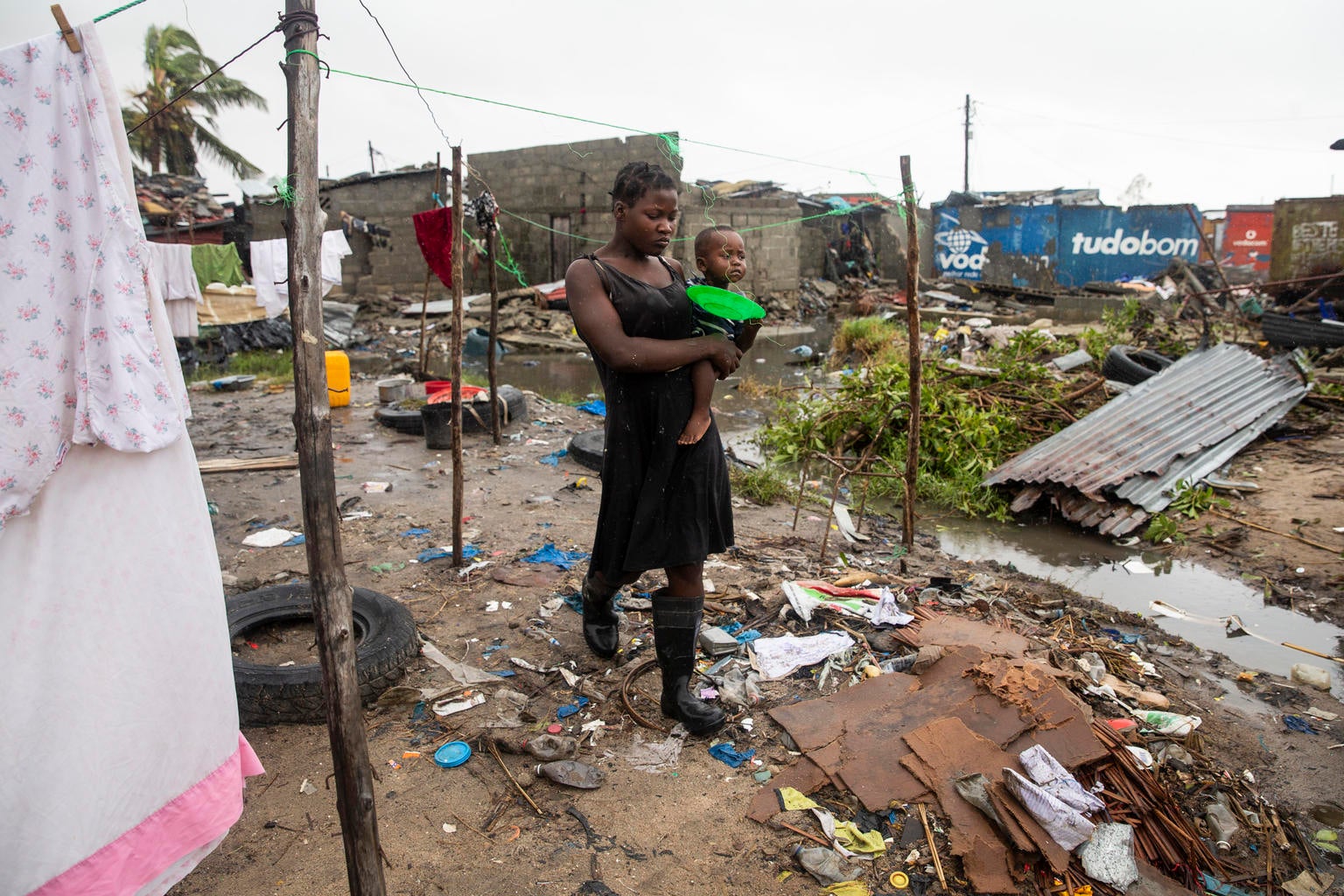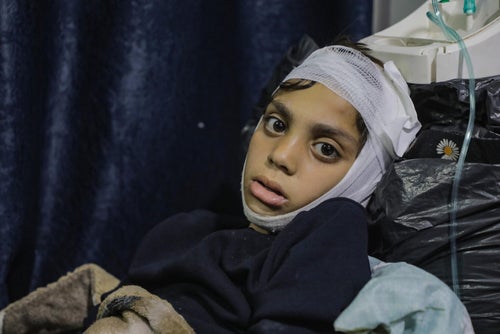When Cyclone Idai tore through central Mozambique, bringing with it hurricane-force winds, heavy rains and floods, thousands of families with young children rushed to higher ground. They waited on the rooftops of buildings and slept in trees above gushing waters, waiting to get to safety.
For Amelia, it was a mother’s worst nightmare. She was heavily pregnant and alone with her two-year-old child when the floodwaters rose. Amelia went into labour and gave birth on the branches of a mango tree where she clambered to safety.
Amelia was eventually rescued and taken to a temporary shelter around 200 km from her home in the remote village of Nhamembe.
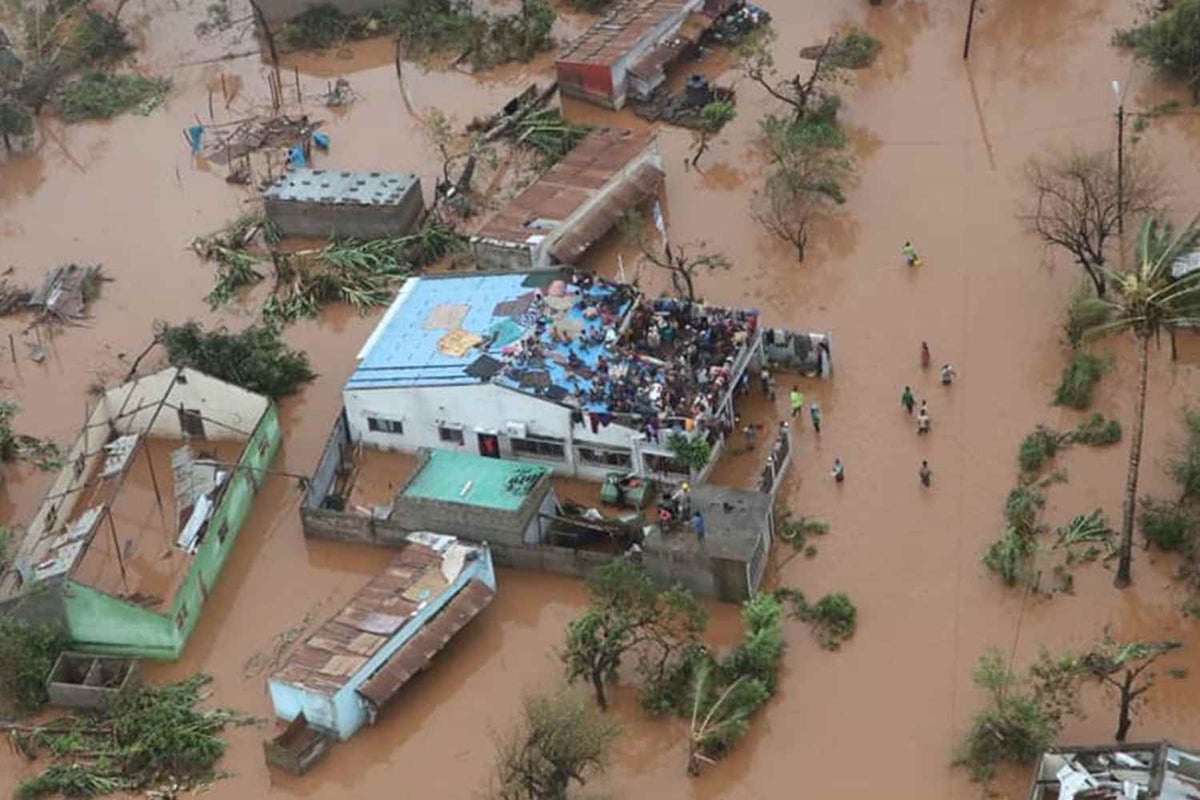
Elizarda and her two children were rescued by helicopter after spending three days on the roof of a shop surrounded by flood water. They were hungry and scared. The building was shaking under the weight of nearly a hundred people who were waiting for help.
“We walked through knee deep water to jump onto the helicopter,” Elizarda, 19, says.
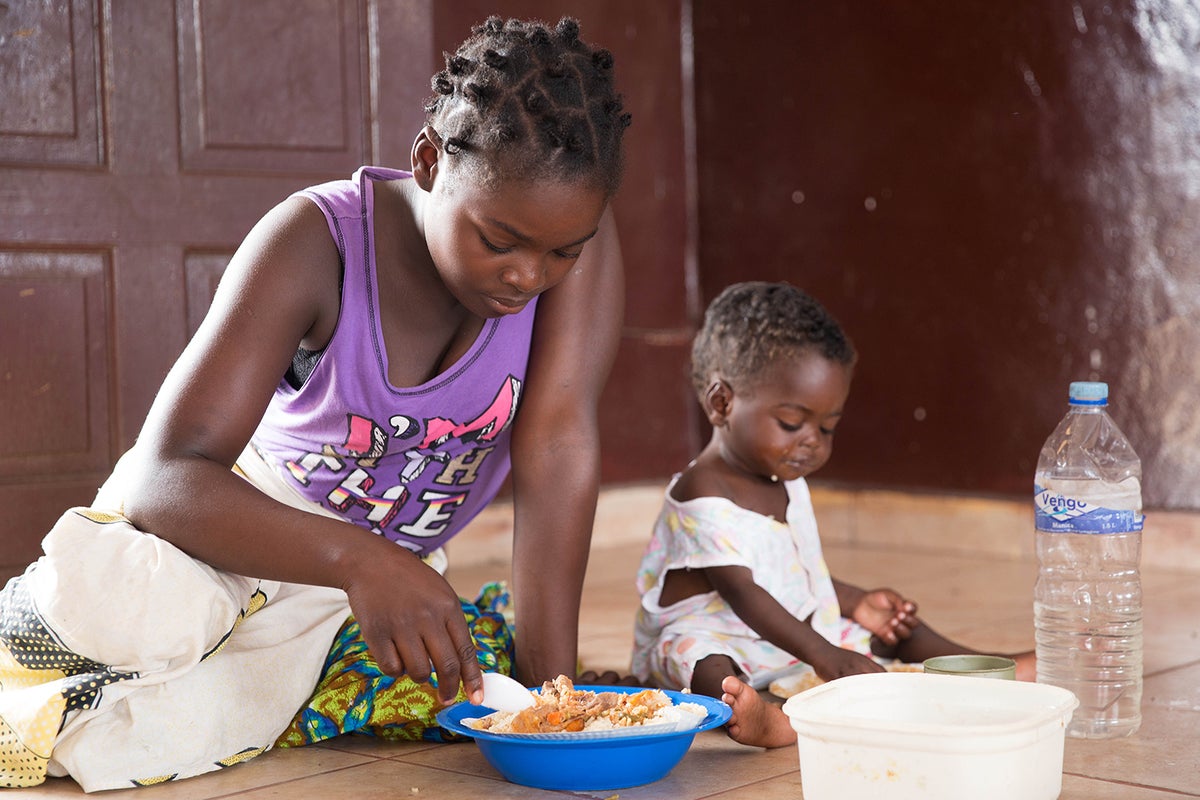
Elizarda’s son, Marquer, is malnourished. After the family was rescued, Marquer was taken to a centre where he was enrolled in a therapeutic feeding program.
“I don’t know what I can return to,” Elizarda says.
“We are farmers, we don’t have money. In our home we grow our food. There life was easy. I am thinking of returning but I am really worried.”
Luisa, 52, was separated from her 14-year-old son in the chaos of the disaster. She still doesn’t know where he is. She has spent the last month in a hospital in Beira with her granddaughter who is suffering from severe acute malnutrition and tuberculosis.
When the floods came, Luisa and some of her family climbed on top of the roof of a nearby school where they spent four days waiting to be rescued.
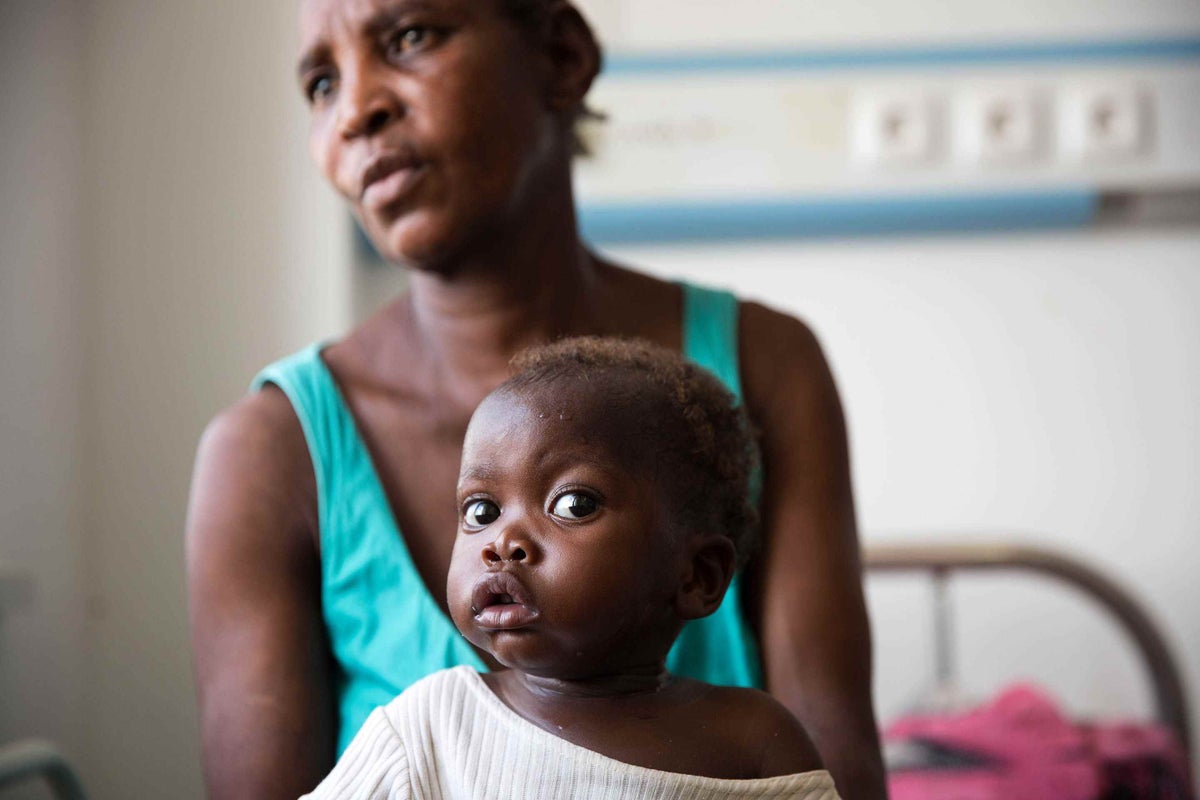
“I didn’t know if the baby would survive. There was no food, we had nothing to eat for four days,” Luisa says.
“There were so many people on the roof. I saw many bodies floating in the water and I was very scared.”
Luisa’s granddaughter is receiving treatment and is getting better.
GIVE THE GIFT OF PROTECTION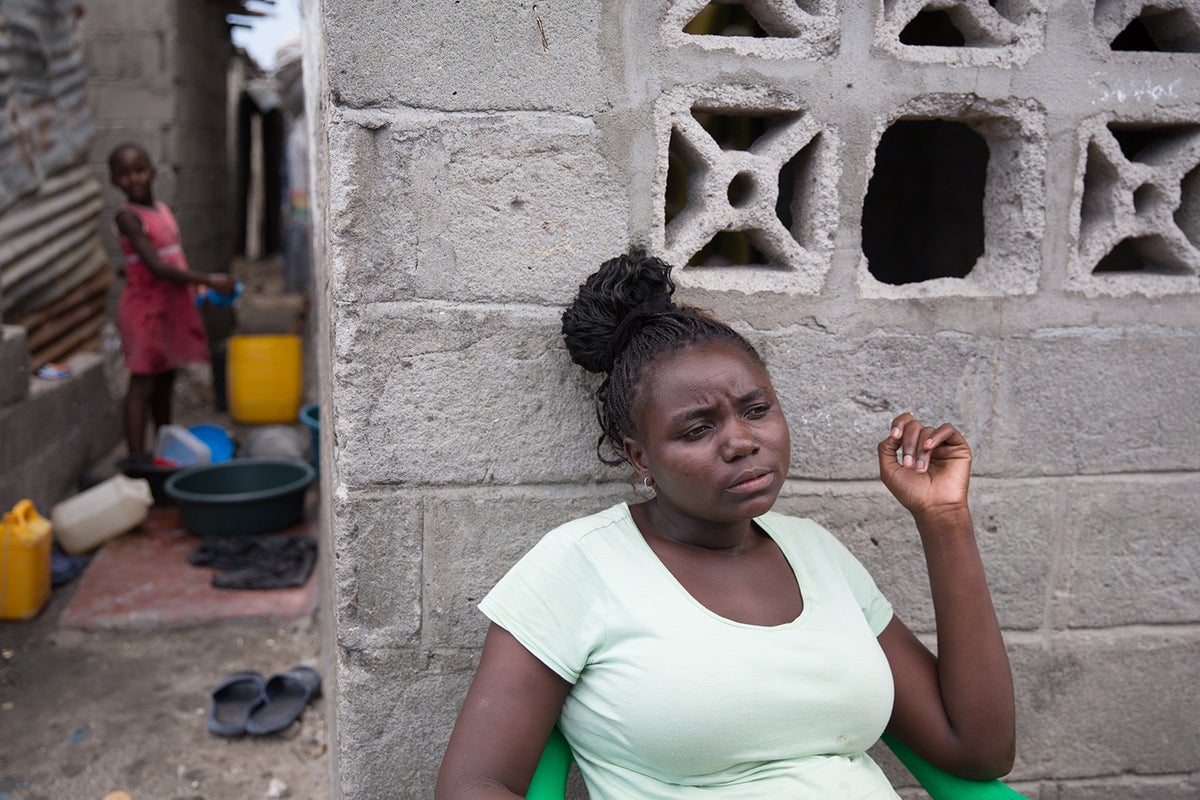
When Cyclone Idai first made landfall in the city of Beira, Rosa called her children inside their tiny house to take shelter.
“We kept all the children inside the house when the cyclone hit. We wanted to keep them safe.,” Rosa, 26, says.
But the weak infrastructure could not withstand the strong winds and their roof was ripped off leaving the house open to pounding rains and destruction.
“I was very scared for my children. We feared death and thought the house would collapse,” Rosa said.
Cyclone Idai wreaked havoc on Mozambique, Zimbabwe and Malawi killing more than 600 people and leaving roughly 1.85 million people in need of humanitarian assistance in Mozambique alone.
Just six-weeks later, when the country was still reeling from the devastation, another cyclone hit the region. Cyclone Kenneth made landfall in the northern region of the country, marking the first time in history for Mozambique of two strong tropical cyclones in the same season.
In the wake of Cyclone Kenneth, UNICEF has deployed emergency workers in health, child protection and water, sanitation and hygiene to the affected areas and is shipping life-saving supplies.
We know that disasters like these lead to poor living conditions and a lack of safe drinking water and sanitation which often results in disease outbreaks.
We only have a short window to protect children in cases like these. Vaccinations are protecting more children than ever before. No matter where they are in the world, children who are vaccinated have a better chance to survive, thrive and reach their potential.
Our staff are only able to act quickly because of people like you.
GIVE THE GIFT OF VACCINES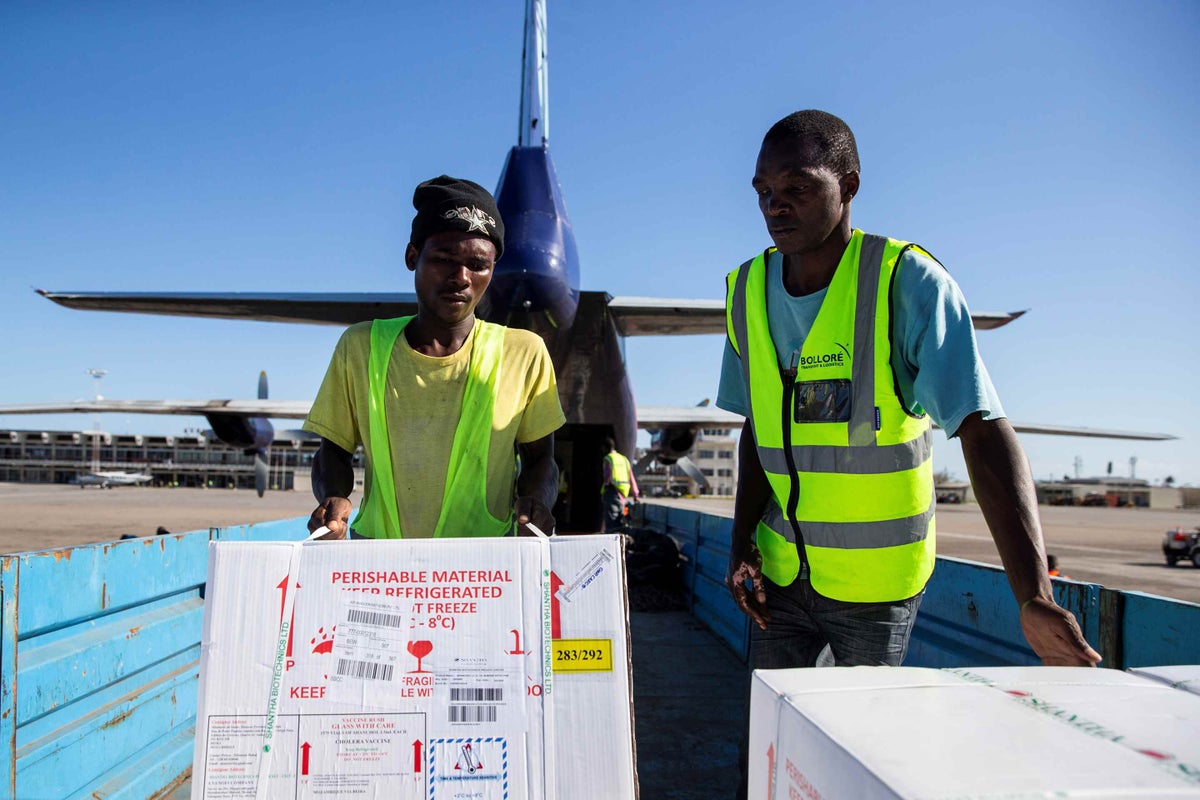
Related articles
Stay up-to-date on UNICEF's work in Australia and around the world



